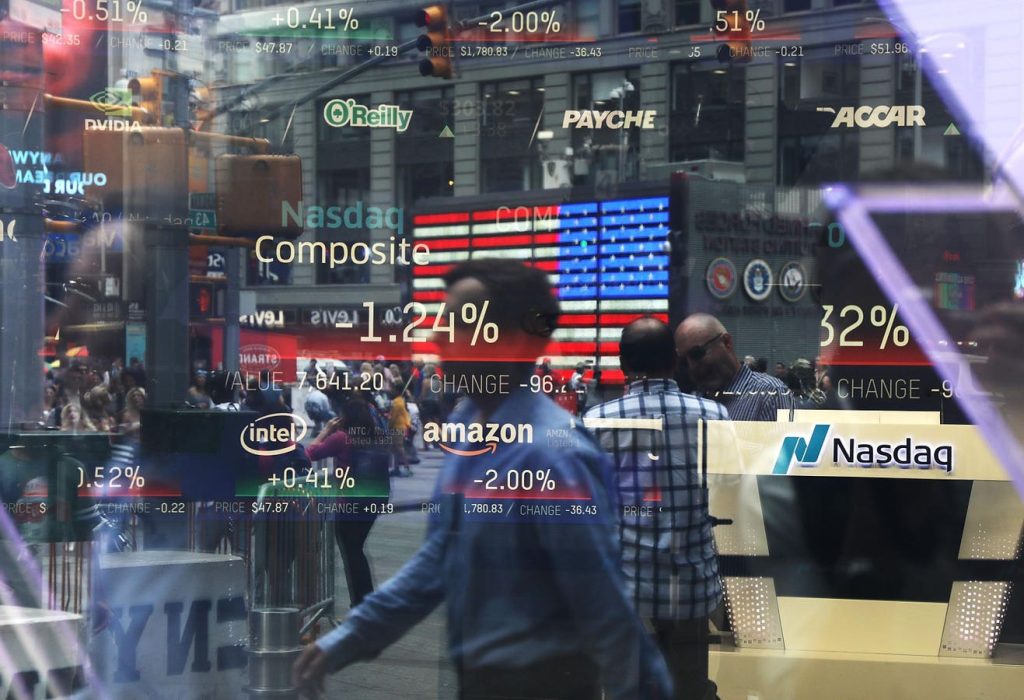More than three quarters of Americans are not familiar or have a good understanding of ESG actually means, according to a new survey.
The survey by the public affairs firm Global Strategy Group and SEC Newgate found 78% of Americans are either not familiar, have never heard or not sure what the corporate term actually means.
Only 22% of those surveyed said they had a good understanding of what ESG, which is up from 15% of those polled last year.
The groups who are more likely to have heard of ESG are men (65%), Millennials (68%), college-educated Americans (69%) and Republicans (61%).
The report comes at a time when anti-ESG rhetoric is growing, particularly among some politicians.
In May, Florida governor Ron DeSantis signed into law a bill barring state officials from investing public money to promote environmental, social and governance goals, and prohibiting ESG bond sales.
Jade Floyd, senior vice president at GSG, said in an email there have been coordinated attacks from right-wing policymakers and advocacy organizations, which are forcing companies to examine ESG more carefully and recalibrate how and when they engage on social and political issues.
“Companies are at risk of legislation, litigation, regulation, and ongoing investigations by anti-ESG policymakers and leaders,” said Floyd.
“We know from our experience working with many corporate clients that executives are increasingly cautious about how and when to engage in ESG issues,” she added.
“The fear of increased media scrutiny along with the rhetoric on Capitol Hill is causing companies to think twice about publicizing their ESG activity.”
But the survey also shows that 72% of respondents think it is important for companies to action on ESG issues, and nearly two thirds (60%) agree that companies should speak up when it comes to issues that are important to their employees and customers.
And just four in 10 respondents believe companies are currently behaving ethically and doing the right thing.
Floyd added in an interview the report “really gives you a sense that many Americans have an appetite for the components of ESG”.
“They care about diversity and inclusion,” Floyd told me.
“These are factors that are becoming increasingly more important to younger generations, millennials and Gen Z who are going to be moving up in the ranks of leadership and companies. They are going to be driving investment and buying decisions in the future.”
The survey also found young workers are expecting more from their employers when it comes to ESG.
In the U.S., one in three workers between 18-29 rated their employers poor on opportunities for professional development and training, support for well-being, and hybrid working arrangements.
And more than three-quarters (79%) of Millennial respondents said consider ESG activity when they are deciding who to vote.
Svante Göthe, head of sustainability at RELEX Solutions, commented in an email companies have to deal with several global pressures on their businesses, such as climate change, threats to public health and loss of biodiversity.
“As a consumer, it’s hard to navigate all of this and understand what is for real, and what are just fancy terms,” said Göthe.
“And the same goes for companies. In an unregulated ESG field, it’s easy to get lost in doing things that don’t really move the needle.”
Kim Knickle, research director for ESG and sustainability at global research firm Verdantix said in an interview while the phrase ESG has been getting a lot of negative press recently, many companies understand that they need to improve their performance around its component parts.
“It’s a board’s responsibility to think about the short term and the long term,” she told me.
“And if you’re going to do that, then you should be thinking about all the components of ESG. They just need to get past any hesitation and figure out all the different ingredients. If you need to talk about sustainability, talk about sustainability.”
Read the full article here










